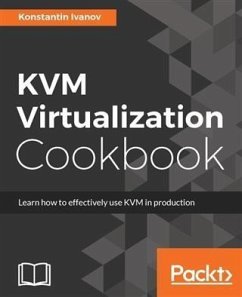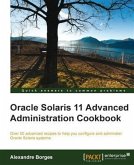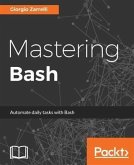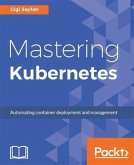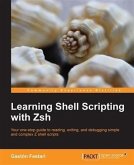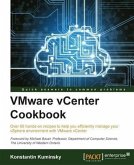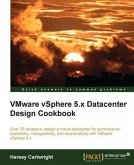About This Book
- Build, manage and scale virtual machines with practical step-by-step examples
- Leverage the libvirt user-space tools and libraries to manage the life-cycle of KVM instances
- Deploy and scale applications inside KVM virtual machines with OpenStack
If you are a system administrator working KVM virtualization, this book will help you grow on your expertise of working with the infrastructure to manage things in a better way. You should have a knowledge of working with Linux based systems.
What You Will Learn
- Deploy different workloads in isolation with KVM virtualization and better utilize the available compute resources
- Explore the benefits of running applications with KVM and learn to prevent the "bad-neighbor" effect
- Leveraging various networking technologies in the context of virtualization with Open vSwitch and the Linux bridge.
- Create KVM instances using Python and inspect running KVM instances
- Understand Kernel Tuning for enhanced KVM performance and better memory utilization
Virtualization technologies such as KVM allow for better control over the available server resources, by deploying multiple virtual instances on the same physical host, or clusters of compute resources. With KVM it is possible to run various workloads in isolation with the hypervisor layer providing better tenant isolation and higher degree of security.
This book will provide a deep dive into deploying KVM virtual machines using qemu and libvirt and will demonstrate practical examples on how to run, scale, monitor, migrate and backup such instances. You will also discover real production ready recipes on deploying KVM instances with OpenStack and how to programatically manage the life cycle of KVM virtual machines using Python. You will learn numerous tips and techniques which will help you deploy & plan the KVM infrastructure. Next, you will be introduced to the working of libvirt libraries and the iPython development environment.
Finally, you will be able to tune your Linux kernel for high throughput and better performance. By the end of this book, you will gain all the knowledge needed to be an expert in working with the KVM virtualization infrastructure.
Style and approach
This book takes a complete practical approach with many step-by-step example recipes on how to use KVM in production. The book assumes certain level of expertise with Linux systems and virtualization in general. Some knowledge of Python programming is encouraged, to fully take advantage of the code recipes.
Dieser Download kann aus rechtlichen Gründen nur mit Rechnungsadresse in A, B, BG, CY, CZ, D, DK, EW, E, FIN, F, GR, HR, H, IRL, I, LT, L, LR, M, NL, PL, P, R, S, SLO, SK ausgeliefert werden.
Hinweis: Dieser Artikel kann nur an eine deutsche Lieferadresse ausgeliefert werden.

